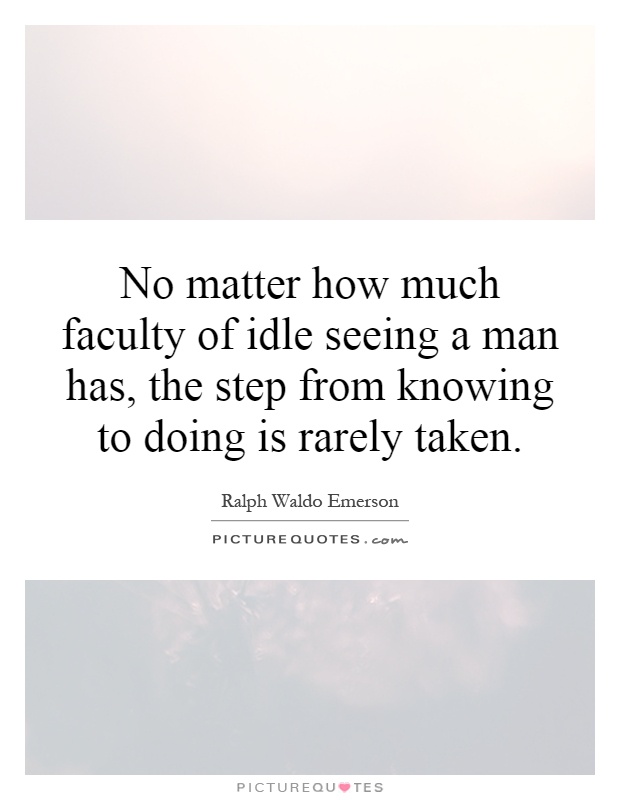No matter how much faculty of idle seeing a man has, the step from knowing to doing is rarely taken

No matter how much faculty of idle seeing a man has, the step from knowing to doing is rarely taken
Ralph Waldo Emerson, a renowned American essayist, lecturer, and poet, was a firm believer in the power of self-reliance and individualism. He often emphasized the importance of taking action and not just passively observing the world around us. In his essay "Self-Reliance," Emerson famously wrote, "No matter how much faculty of idle seeing a man has, the step from knowing to doing is rarely taken." This statement encapsulates Emerson's belief that knowledge alone is not enough; one must also have the courage and determination to act upon that knowledge.Emerson believed that too many people were content to simply observe and analyze the world without ever taking any meaningful action. He saw this as a waste of human potential and a barrier to personal growth and fulfillment. In his view, true wisdom comes not from passive observation, but from active engagement with the world and the willingness to take risks and make mistakes.
Emerson's philosophy of self-reliance and action is closely tied to his belief in the power of the individual. He believed that each person has the ability to shape their own destiny and create their own path in life. However, this can only be achieved through action and not just through idle contemplation.
Emerson's call to action is a reminder that knowledge without action is meaningless. It is not enough to simply know what needs to be done; one must also have the courage and determination to take the necessary steps to make it happen. This requires a willingness to step out of one's comfort zone, take risks, and embrace the unknown.












 Friendship Quotes
Friendship Quotes Love Quotes
Love Quotes Life Quotes
Life Quotes Funny Quotes
Funny Quotes Motivational Quotes
Motivational Quotes Inspirational Quotes
Inspirational Quotes